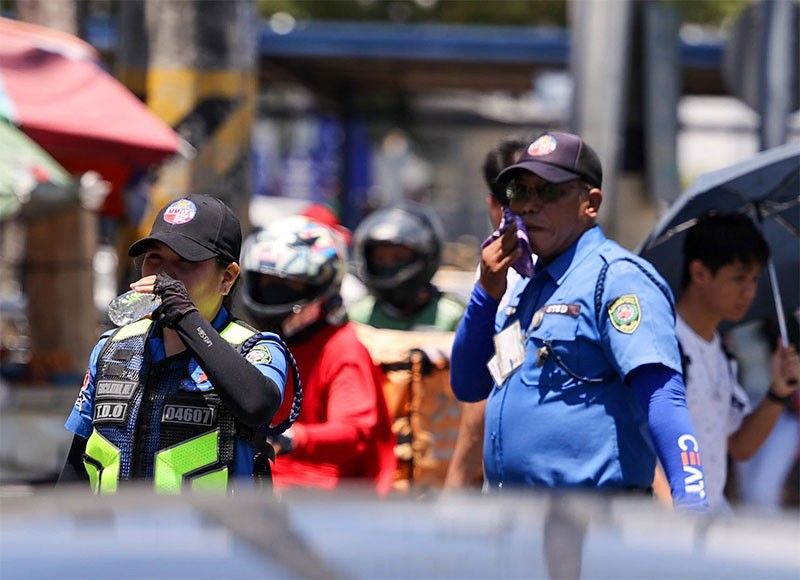‘Employees may skip work amid heat, but no pay’

MANILA, Philippines — Workers may opt not to report for work to avoid scorching heat, but will not get paid for the day, according to the Department of Labor and Employment (DOLE).
As provided under DOLE Advisory No. 17-2022, Labor Secretary Bienvenido Laguesma said an employee has the option not to report for work due to dangers linked to extreme heat.
“Extreme heat is a form of weather disturbance, like El Niño. If reporting will expose the worker to danger, whether actual or imminent, then the worker is justified not to report or render work,” Laguesma disclosed.
“(This is) not simply because of extreme heat but also due to unsafe and unhealthy conditions,” the labor chief pointed out.
The concept of imminent danger applies to all unsafe conditions that may be brought about by human-induced and natural disturbances, including El Niño, Labor Undersecretary Benjo Benavidez explained.
An employee who fails or refuses to work by reason of imminent danger resulting from weather disturbances and similar occurrences is free from administrative sanction.
The same DOLE advisory, however, also provides that the employee who opted not to work is not entitled to regular pay, except when there is a favorable company policy, practice, or collective bargaining agreement granting payment of wages on the said day, or when the employee is allowed to utilize accrued leave credits.
Laguesma reminded employees to inform their employer to avoid any misunderstanding in the workplace.
PhilHealth benefits
Meanwhile, those who may get hospitalized due to heat exhaustion or heat stroke are entitled to avail themselves of Philippine Health Insurance Corp. (PhilHealth) benefits.
“Members admitted at any PhilHealth-accredited health facility due to heat stroke or heat exhaustion are entitled to a benefit package amounting to P6,500,” PhilHealth said.
The benefit package also includes P4,550 for hospital fees and P1,950 for professional fees.
PhilHealth reminds its members to take extra precautions against heat-related illnesses such as limiting outdoor activities, drinking plenty of water and avoiding iced tea, soda, coffee, or alcoholic drinks.
House committee on labor and employment chair Rep. Fidel Nograles asked employers to implement measures to protect their workers from heat stress.
Nograles called on employers to follow measures stipulated in Labor Advisory No. 8 s. 2023 on how employers could avoid heat stress among their workers such as having adequate ventilation in the workplace and access to hydration.
Danger level heat index
At least six areas in the country could experience “danger level” heat index today including Aparri and Tuguegarao in Cagayan at 44 degrees Celsius; Dagupan City and Puerto Princesa City at 43 degrees Celsius; and Laoag City and Daet at 42 degrees Celsius, according to the Philippine Atmospheric, Geophysical and Astronomical Services Administration (PAGASA).
Danger heat index ranges between 42 and 51 degrees Celsius.
At least 11 areas experienced dangerous heat levels on Saturday such as Puerto Princesa at 44 degrees Celsius, and Dagupan City, Aparri and Tuguegarao City at 43 degrees Celsius;
Meanwhile, the heat levels reached 42 degrees Celsius at Laoag City, Subic Bay in Olongapo City; San Jose, Occidental Mindoro; Daet and Pili Camarines Sur; Dumangas, Iloilo; and Cotabato City.
The heat index at Ninoy Aquino International Airport in Pasay City reached 40 degrees Celsius.
PAGASA said that the highest heat index recorded during the observance of Holy Week was recorded in Dagupan City, Pangasinan on March 27 and Aparri, Cagayan on March 29, both at 47 degrees Celsius. — Bella Cariaso, Sheila Crisostomo
- Latest
- Trending






























